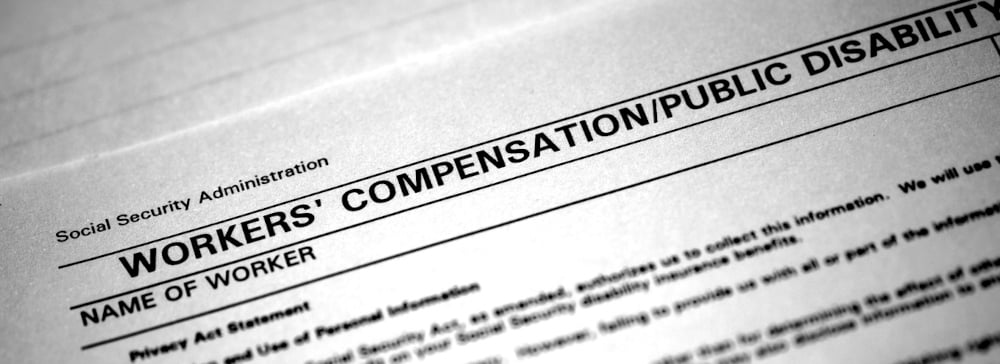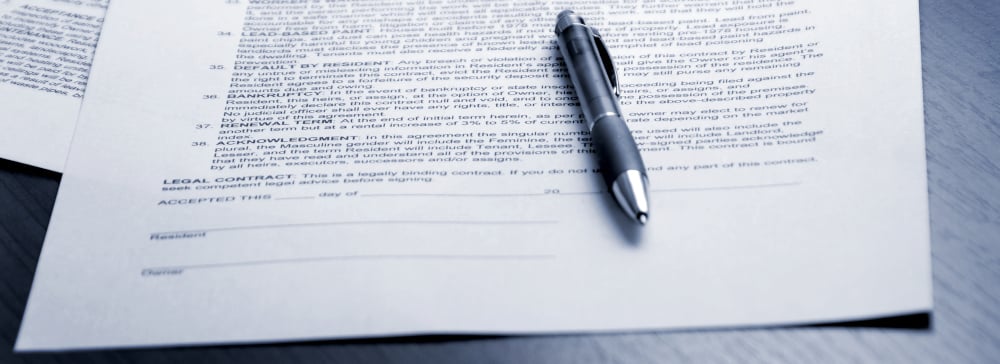Table of Contents
When you’re injured on the job in Polk County, your employer-sponsored health insurance does not pay for your medical care or physical therapy. Instead, job-related injuries fall under the workers’ compensation program.
It’s important to note that before you seek treatment from a healthcare provider, you must see a doctor that is approved by your employer’s insurer. Your employer’s insurance company should pay for your medical treatment and provide you with temporary or permanent disability payments.
The workers’ comp program is designed to be a win-win for employers and injured workers. By providing these benefits, employers protect themselves from personal injury lawsuits filed by injured employees. Workers receive medical treatment for their injuries and wage compensation during their recuperation.
However, workers’ compensation does not always work well for injured parties. Often, a mistake on the paperwork and/or not submitting proper medical evidence will cause your claim to be denied.
A Lakeland workers’ compensation lawyer at Kogan & DiSalvo will help you file a workers’ compensation claim or appeal the denial of a claim.

Workers’ compensation laws are complicated. If you suffer a minor injury in the workplace and your employer’s insurer accepts your claim, you are not likely to need legal representation. However, if you were denied benefits or have had other complications with your claim, you need a lawyer’s expertise.
There are situations in which an employer may legitimately deny a workers’ compensation claim. For instance,
then you may be denied workers’ compensation. However, there are other situations in which employers, or their insurers, will attempt to deny a claim in which case, you may be able to fight back.
For example, they may allege your injury resulted from a pre-existing condition, which does not fall under workers’ comp coverage. If no one witnessed your accident and there is no surveillance video, the insurance company may claim you were making up the time and place of the injury.
Keep in mind that insurance companies will go to great lengths to avoid paying claims.

In Florida, most businesses with at least four employees must carry workers’ comp insurance. For construction companies, workers’ comp coverage is necessary for any business with at least one employee. Employers in the agricultural industry must obtain workers’ comp if they have six employees. If there are a minimum of 12 temporary workers during a season who work more than 30 days but less than 45 days in a calendar year.
When a worker is injured while on the job, they must notify their employer as soon as possible. If the employer does not receive notification within 30 days of the incident, the worker is at risk of losing the ability to recover compensation.
In an emergency, workers can go to the nearest hospital for care. If conscious, tell the hospital personnel you were injured while on the job. Otherwise, you must visit a doctor provided by the employer’s insurer. If you do not like that doctor, under workers’ comp regulations you are permitted one change of physician.
Wage replacement benefits begin on the eighth day of your disability.

Common workplace injuries include:
Certain job-related illnesses may also qualify you for workers’ compensation benefits. These occupational diseases relate to the nature of employment. For instance, workers in certain jobs may develop lung conditions due to exposure to toxins or other harmful substances.

In Florida, the weekly compensation rate for injured workers is equal to 100% of the statewide average weekly wage. The Florida Department of Economic Opportunity determines the average weekly wage for the four calendar quarters ending each June 30. For instance, the maximum weekly compensation rate for work-related injuries and illnesses occurring on or after January 1, 2024, is $1,260.
Have questions about the benefits and compensation you can receive for your work injuries? Contact a Lakeland workers’ compensation lawyer at Kogan & DiSalvo and get all the information you need.
Temporary Total Disability (TTD) benefits should provide you with 66.66% of your wages as of the time of your injury, subject to the Florida maximum. TTD benefits are available for up to 104 weeks.
Temporary Partial Disability (TPD) benefits are paid when the doctor clears you to go back to work but on a restricted basis. If you cannot earn up to 80% of the wages you earned prior to your injury, you may prove eligible to receive TPD benefits. Again, these benefits are available for up to 104 weeks.
If your injuries are so serious that you can never work again, you may receive Permanent Total Disability (PTD) benefits. If you have reached Maximum Medical Improvement (MMI), your doctor has determined that your condition is not expected to improve. At that point, you are then evaluated for an impairment rating.
As long as your permanent impairment rating is above zero, you should prove eligible for PTD based on your rating.
Workers’ comp medical benefits include:
Much will depend on the individual employer’s plan and what it does and does not cover. Note that you must attend all scheduled appointments and follow the doctor’s treatment plan to the letter. Failure to do so will jeopardize your medical benefits.
Workers’ comp insurance provides vocational rehabilitation benefits for those who can no longer perform the type of work they did prior to their injury. Many of these programs provide up to two years of training in new skills as well as certifications so that you can find new employment.
Workers’ comp death benefits are available to surviving family members if the death results from an accident within one year or follows continuous disability from an accident for up to five years. The benefits include:
Total compensation cannot exceed $150,000. The surviving spouse may also receive education benefits.

A denial of your workers’ comp claim must be sent within 120 days of the injury report date. If your workers’ comp claim is denied, you have the right to file an appeal. This is not something you should attempt to do on your own. It is wise to hire a Polk County workers compensation attorney. You must file the Petition for Benefits within two years of your injury.

If you or someone you know was injured while on the job and has a workers’ compensation claim, contact a Lakeland personal injury lawyer at Kogan & DiSalvo today and schedule a free, no-obligation consultation.
Florida law is strict regarding legal fees when it comes to workers’ compensation cases, so you will pay no fee unless you receive compensation.
If you are injured and unable to come to us,
our attorney will come to you - there is no charge for us to do so.